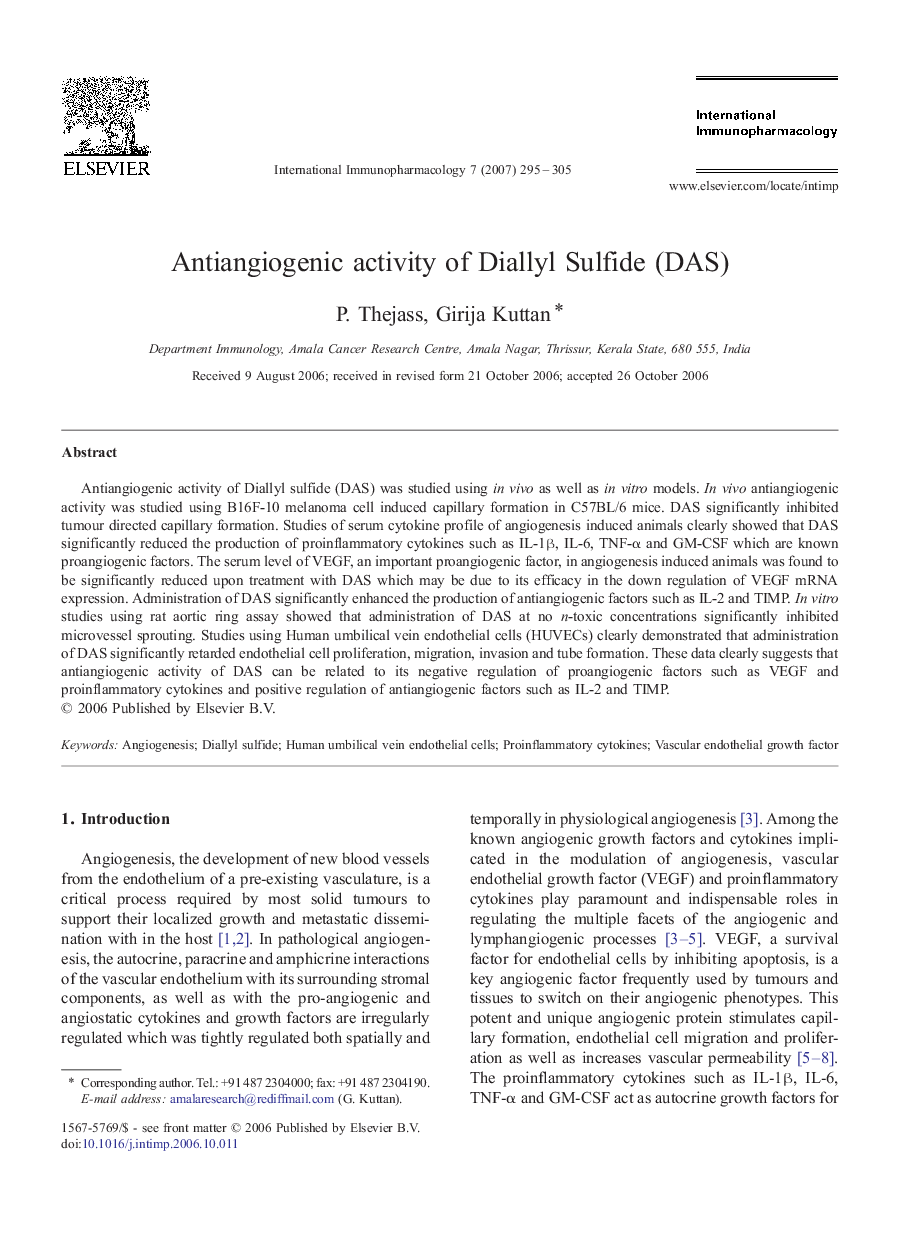| Article ID | Journal | Published Year | Pages | File Type |
|---|---|---|---|---|
| 2541700 | International Immunopharmacology | 2007 | 11 Pages |
Antiangiogenic activity of Diallyl sulfide (DAS) was studied using in vivo as well as in vitro models. In vivo antiangiogenic activity was studied using B16F-10 melanoma cell induced capillary formation in C57BL/6 mice. DAS significantly inhibited tumour directed capillary formation. Studies of serum cytokine profile of angiogenesis induced animals clearly showed that DAS significantly reduced the production of proinflammatory cytokines such as IL-1β, IL-6, TNF-α and GM-CSF which are known proangiogenic factors. The serum level of VEGF, an important proangiogenic factor, in angiogenesis induced animals was found to be significantly reduced upon treatment with DAS which may be due to its efficacy in the down regulation of VEGF mRNA expression. Administration of DAS significantly enhanced the production of antiangiogenic factors such as IL-2 and TIMP. In vitro studies using rat aortic ring assay showed that administration of DAS at no n-toxic concentrations significantly inhibited microvessel sprouting. Studies using Human umbilical vein endothelial cells (HUVECs) clearly demonstrated that administration of DAS significantly retarded endothelial cell proliferation, migration, invasion and tube formation. These data clearly suggests that antiangiogenic activity of DAS can be related to its negative regulation of proangiogenic factors such as VEGF and proinflammatory cytokines and positive regulation of antiangiogenic factors such as IL-2 and TIMP.
